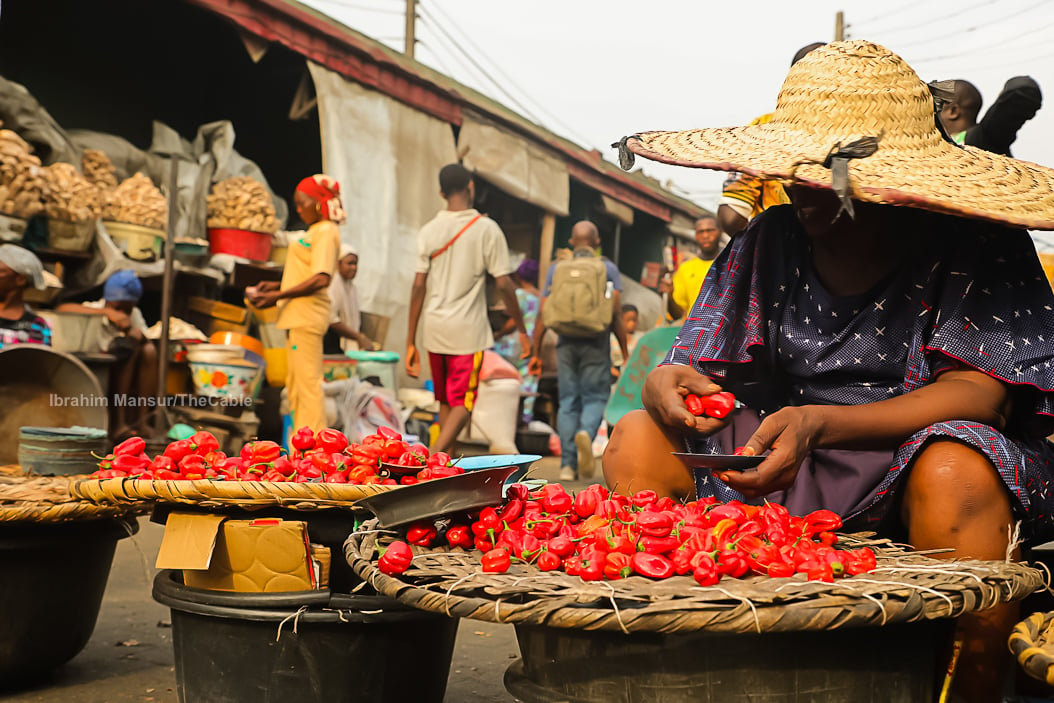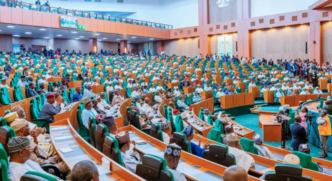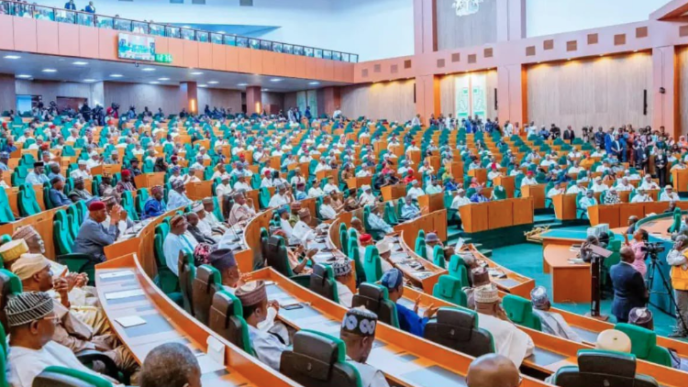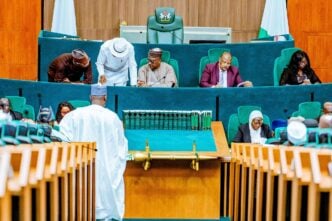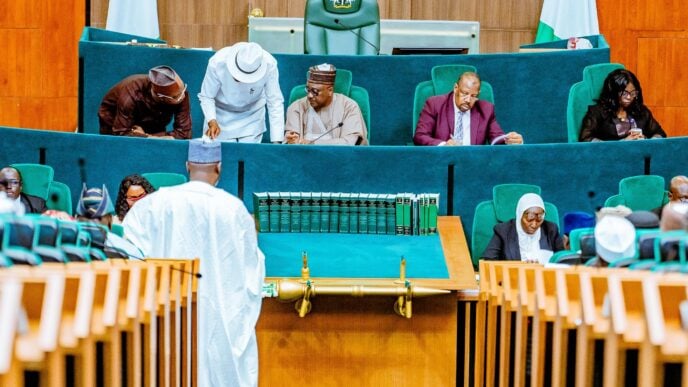SB Morgen (SBM) Intelligence, a geopolitical research firm, says food prices in Nigeria dropped marginally in the third quarter (Q3) of 2025.
However, SBM said the decline has done little to ease the strain on households as insecurity and poor logistics continue to drive the country’s food inflation.
The research firm, in its latest report, titled ‘Jollof Index Q3 2025: A Tale of Two Economics,’ said the national average Jollof index fell by 3.17 percent from N27,528 in June to N26,656 in September.
SBM said the moderation, however, was “non-linear and fragile,” driven mainly by seasonal harvests rather than structural improvements.
Advertisement
“Nigeria’s food affordability crisis remains acute. The easing of inflation is largely statistical, not practical,” the report said.
The research firm partially credited the easing momentum to government interventions, notably import waivers for key food items, which improved market supply, and a more stable naira, which helped curb the cost of imported inputs.
“However, the temporal pattern of price relief indicates a deep structural challenge,” SBM said.
Advertisement
“The non-linear decline, with meaningful relief materialising only in September, suggests that the price moderation is overwhelmingly tied to the timing of seasonal supply arrival and early harvest yields, rather than systematic improvements in logistics or security.”
The report found that security failures and logistics bottlenecks have structurally anchored food inflation, with transporters routinely paying N5,000 to N50,000 in informal fees or for armed escorts.
SBM noted that the hidden costs add up to 20 percent to 30 percent on the final price of goods, effectively functioning as an “unofficial tax on commerce”.
The firm warned that without addressing the embedded costs, Nigeria’s food inflation will remain resistant to conventional policy measures.
Advertisement
Providing recommendations, SBM urged the government to prioritise the restoration of security in agricultural zones, viewing it as foundational economic infrastructure.
“Declare a state of emergency on key federal roads to reduce logistics costs and dismantle the architecture of extortion (the unofficial checkpoints and illegal escort systems),” the report added.
Highlighting the impact of food inflation on Nigerian households by states, data showed that Kano, a key northern trade hub, saw prices rise by 6.83 percent due to insecurity and the diversion of local produce.
“Port Harcourt recorded a 1.84 percent increase, driven by poor roads and high internal distribution costs. Bauchi, on the other hand, witnessed a sharp 15 percent decline due to local harvests,” the report said.
Advertisement
“Conversely the South-east and South-south faced persistently high and sticky costs, driven by internal logistics, high demand, and operational expenses.”
‘GHANA ACHIEVED A MILESTONE’
Advertisement
In its report, SBM said while Nigeria grapples with structural bottlenecks, Ghana achieved a contrasting milestone by reducing inflation to single-digit, its lowest since 2021.
However, the report noted that Ghana’s stability remains fragile due to dependence on imported staples and regional inequality, with the northern region recording inflation twice the national average.
Advertisement
“This requires targeted, substantial investment in the Northern region’s road infrastructure and ensure that Cedi benefits and national policy relief reach inland areas, effectively removing the ‘silent tax ’ imposed by poor road networks,” SBM said.
“Ghana’s policy focus must pivot towards closing the regional inflation gap through targeted investments in infrastructure and accelerating agricultural self-sufficiency to sustain macroeconomic stability.”
Advertisement
Also, SBM warned that Nigeria’s modest Q3 relief could reverse in Q4 as festive demand rises, unless the government acts quickly to secure food-producing areas and reduce transit costs.
The firm advised policymakers to look beyond year-on-year inflation figures and focus on extreme month-on-month volatility and persistently high absolute prices.
